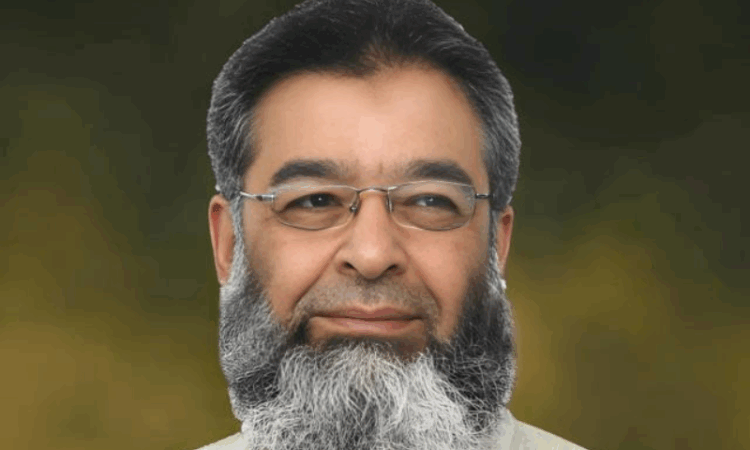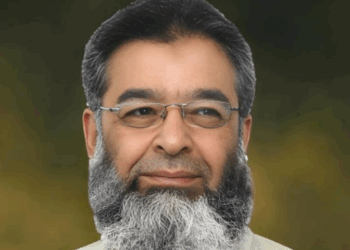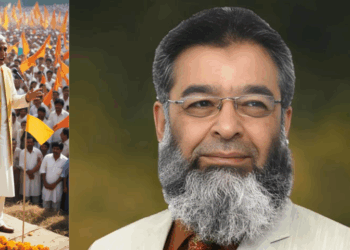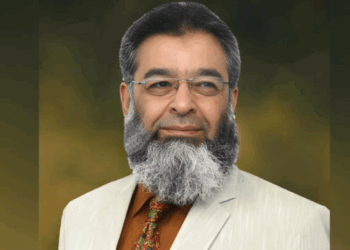By Muhammad Mohsin Iqbal
In a world already teetering on the edge of multiple crises, the recent Israeli attack on Iran has not only heightened regional tensions but also exposed the dangerous game being played by certain global actors. This act of aggression comes on the heels of the Indian incursion into Pakistani territory earlier in May, which was effectively repelled by Pakistan on May 7 through a calculated and courageous response. While the threat of a prolonged conflict between two nuclear-armed neighbors was fortunately averted, the winds of war appear to have shifted eastward, now blowing over Iran with unsettling force.
This is not the first time Israel has launched strikes on Iranian soil. Over the years, Tel Aviv has carried out numerous covert and overt operations aimed at sabotaging Iran’s nuclear program and military assets. In 27 November 2020, the assassination of a prominent Iranian nuclear scientist Mohsen Fakhrizadeh in Absard, Damavand County, near Tehran was widely attributed to Israel, though the latter never officially accepted responsibility. Earlier, in 2018, Israeli Prime Minister Benjamin Netanyahu claimed that Mossad had obtained a vast cache of Iranian nuclear documents, a move that was seen as part of Israel’s broader psychological warfare against Tehran.
More recently, Israel has increased the frequency and intensity of its aerial strikes on Iranian positions in Syria, with hundreds of such attacks recorded over the past decade. According to the Syrian Observatory for Human Rights, Israel carried out over 1,200 airstrikes between 2013 and 2023, many of which targeted Iranian personnel or affiliated militias. In April 2024, Israel was also believed to be behind a massive explosion at an Iranian military facility in Isfahan, further escalating the conflict. These incidents form a clear pattern of hostility, aimed not merely at neutralizing perceived threats, but at weakening Iran’s position in the region.
However, this latest assault appears to be different in scope and implication. It does not seem to be a tactical strike but part of a strategic shift—an escalation that may trigger a broader conflict. The silence or muted response of major powers, who otherwise advocate international law and peace, is telling. The question arises; why is there such unflinching tolerance toward Israel’s repeated defiance of international norms, and why does the world community fail to respond with the same vigor when Muslim nations are targeted?
The answer lies perhaps in a larger, more unsettling reality. A pattern has emerged over the past two decades, in which rising Muslim states are systematically destabilized under various pretexts. Iraq was invaded under the claim of possessing weapons of mass destruction—claims that were never substantiated. Libya was bombed into oblivion in the name of democracy. Syria has suffered a decade-long civil war, fueled by both regional and international interventions. And now, the focus has shifted to Iran, a country that has demonstrated resilience in the face of severe sanctions and diplomatic isolation.
It is worth observing that while some powers view any military or scientific progress by a Muslim state as a threat, no Muslim nation has declared a non-Muslim neighbor’s advancement as a justification for preemptive aggression. Rather, most Islamic countries, including Iran and Pakistan, have maintained a defensive posture, advocating peace and coexistence. Yet, provocations continue, often with silent complicity from the global powers who portray themselves as champions of human rights and international order.
The events of May, when India attempted an aggressive maneuver against Pakistan, serve as a vivid reminder of this coordinated hostility. Reports have surfaced indicating that Israel and India shared intelligence and possibly collaborated in planning that operation. Pakistan’s response, however, was swift and decisive. Blessed by the Almighty Allah and executed by a professional and resolute military, Pakistan thwarted their ambitions and preserved regional stability. Failing to destabilize Pakistan, the focus now appears to have shifted to Iran, a nation that, despite decades of isolation, has continued to advance technologically and militarily.
Iran has every right under international law to respond to unprovoked aggression. If it fails to do so, it risks facing the same fate as Palestine, where an oppressed nation has been gradually stripped of land, rights, and international support. But should Iran retaliate, there is little doubt that powerful nations will quickly mobilize to shield Israel and condemn Tehran, continuing the cycle of double standards and strategic land encroachments. History shows us the likely outcome—either subjugation through silence or condemnation through resistance.
This moment demands a collective awakening. The Muslim world, in particular, must reflect on the broader picture—how one after another, flourishing Islamic nations are being targeted, weakened, or dismembered. It is not merely about one country or one conflict; it is about a sustained campaign to prevent the rise of any Muslim nation that can assert itself on the world stage. Iran, like Pakistan, stands at a critical juncture. The decisions taken now will shape not only the future of individual nations but the dignity and sovereignty of the Muslim Ummah as a whole.
The time has come for the international community, especially those who uphold justice, to break their silence. Injustice anywhere is a threat to justice everywhere, and unchecked aggression, especially when cloaked in selective morality, will only push the world closer to chaos. Let us hope that reason prevails before the region is plunged into a broader, perhaps uncontrollable, conflict.








